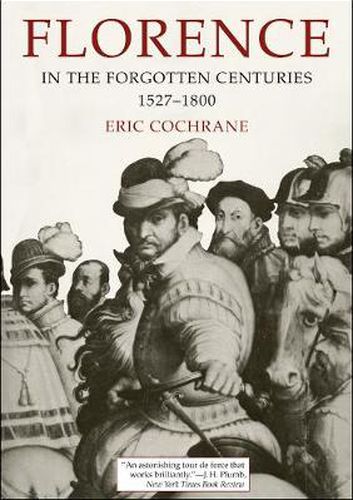Readings Newsletter
Become a Readings Member to make your shopping experience even easier.
Sign in or sign up for free!
You’re not far away from qualifying for FREE standard shipping within Australia
You’ve qualified for FREE standard shipping within Australia
The cart is loading…






The city of Florence has long been admired as the home of the brilliant artistic and literary achievement of the early Renaissance. But most histories of Florence go no further than the first decades of the sixteenth century. They thus give the impression that Florentine culture suddenly died with the generation of Leonardo, Machiavelli, and Andrea del Sarto.
Eric Cochrane shows that the Florentines maintained their creativity long after they had lost their position as the cultural leaders of Europe. When their political philosophy and historiography ran dry, they turned to the practical problems of civil administration. When their artists finally yielded to outside influence, they turned to music and the natural sciences. Even during the darkest days of the great economic depression of the late seventeenth and early eighteenth centuries, they succeeded in preserving-almost alone in Europe-the blessings of external peace and domestic tranquility.
$9.00 standard shipping within Australia
FREE standard shipping within Australia for orders over $100.00
Express & International shipping calculated at checkout
The city of Florence has long been admired as the home of the brilliant artistic and literary achievement of the early Renaissance. But most histories of Florence go no further than the first decades of the sixteenth century. They thus give the impression that Florentine culture suddenly died with the generation of Leonardo, Machiavelli, and Andrea del Sarto.
Eric Cochrane shows that the Florentines maintained their creativity long after they had lost their position as the cultural leaders of Europe. When their political philosophy and historiography ran dry, they turned to the practical problems of civil administration. When their artists finally yielded to outside influence, they turned to music and the natural sciences. Even during the darkest days of the great economic depression of the late seventeenth and early eighteenth centuries, they succeeded in preserving-almost alone in Europe-the blessings of external peace and domestic tranquility.